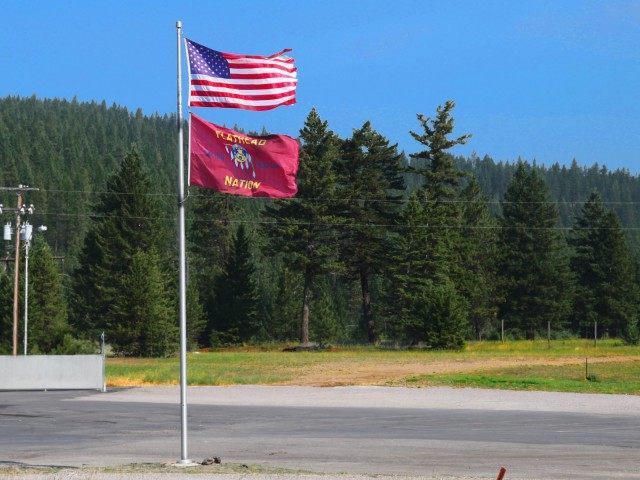A federal judge refused late Friday evening to block the transfer of a dam to two Native American tribes. Montana lawmakers had launched an emergency petition to block the transfer. It is feared that the tribes intend to contract with Turkey for access to uranium to make “yellowcake” and/or nuclear weapons.
The lawsuit, filed by state Sen. Bob Keenan (R), former state Sen. Verdell Jackson (R) and Pointer Scenic Cruises sought an emergency order to block Saturday’s transfer of the Kerr dam from NorthWestern Energy to the tribes on Montana’s Flathead Indian Reservation.
The plaintiffs argue that to avoid negotiating with the United States government for uranium, supposedly to power nuclear generators, Turkey appears to be funding an effort with Native American tribes to gain possession of a federal dam to access the nuclear raw materials on U.S. soil, according to the New York Times.
From 1787 to 1871, nearly 400 treaties were signed between the United States and Indian tribes. The United States obtained the land that they wanted and promised to respect the sovereign independence of the tribes in exchange for food, supplies, health care, education and other services.
Although this “doctrine of trust responsibility” is both a legal and a moral responsibility to recognize Indian sovereignty, the Obama Administration has moved authority for entitlement funding of Indian Affairs from “discretionary” to “mandatory non-discretionary” category within the federal budget. The move all but eliminates Congressional control of Indian activities, such as negotiating with foreign governments.
The plaintiffs’ lawyer, Lawrence Kogan, suggested that the Turkish government may be seeking to “to more freely promote their brand of Islam on reservations and/or to pursue other potentially more dangerous activities.” Kogan added that those activities could include using the dam’s water resources to mine uranium deposits and reprocess uranium mill tailings to produce yellowcake for use in bombs.
Turkey and the United States are allies, NATO members and partners in U.S. counterterrorism efforts in fighting the rise of the Islamic State, according to the U.S. State Department. Turkey, through a “nuclear weapons sharing agreement” with NATO, is believed to host about twenty American nuclear bombs.
Although the nonprofit Nuclear Threat Initiative says Turkey is active in nuclear proliferation prevention efforts and a member of all major treaties governing the acquisition and use of nuclear weapons, the Bulletin of Atomic Scientists reported that Turkey began working with Japan in 2013 to build a string of nuclear power plants that could be repurposed to make weapons.
The lawsuit states: “It is quite possible that the Turkish government, sponsored Turkish business enterprises, and affiliated terrorist groups or members may be seeking access to such expertise for possible acquisition and use of incendiary devices to compromise Kerr dam and/or other off-reservation targets.”
The lawsuit contends that the Federal Energy Regulatory Commission should hold hearings on the Confederated Salish and Kootenai Tribes’ ability to safely operate the dam. But the key contention is that national security concerns should prevent the transfer.
It is asserted by the Turkish government and its Turkish-American allies that the effort is merely to establish business and cultural exchanges with Native Americans. This seems dubious given that the dam is in an extremely remote region.
Despite the lawsuit including a large number of reports and articles detailing how Turkey appears be moving toward securing its own nuclear weapons, U.S. District Judge Rudolph Contreras rejected the restraining order.

COMMENTS
Please let us know if you're having issues with commenting.